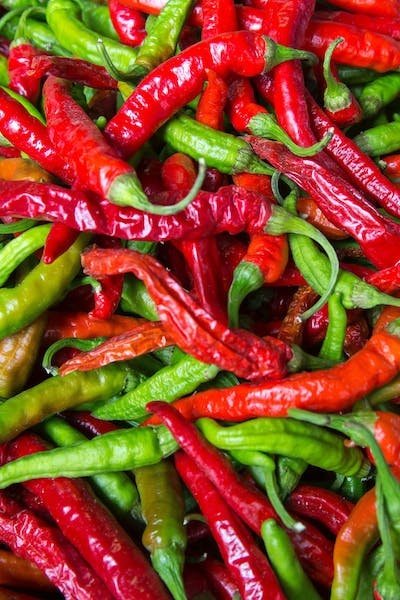1. Gastrointestinal Distress
- Heartburn: Burning sensation in the chest or throat.
- Stomach Pain: Cramping or burning in the stomach.
- Diarrhea: Excessive capsaicin speeds up digestion, leading to loose stools.
2. Mouth and Throat Irritation
- Burning Sensation: Strong, painful burning in the mouth.
- Swelling: In severe cases, swelling in the mouth and throat.
- Excessive Salivation: Increased saliva production in response to irritation.
3. Increased Sweat and Tears
- Profuse Sweating: Excessive sweating as the body tries to cool down.
- Tearing: Eyes watering due to capsaicin’s effect on tear production.
4. Nasal Congestion and Runny Nose
- Nasal Congestion: Swelling of blood vessels in the nose.
- Runny Nose: Excess mucus production in response to irritation.
5. Potential Skin Irritation
- Burning Sensation: Capsaicin can transfer to your skin, causing a burning feeling.
- Rashes or Blisters: Extreme cases may result in skin rashes or blisters.
6. Temporary Blood Pressure Spike
- Increased Blood Pressure: Short-term rise in blood pressure due to capsaicin’s effects on heart rate and blood vessels.
7. Potential Long-Term Risks
- Gastric Ulcers: Chronic irritation can increase ulcer risk.
- Worsening Conditions: Can exacerbate conditions like acid reflux, IBS, or gastritis.
Key Takeaways
While pepper can enhance flavor and provide health benefits, consuming it excessively can lead to uncomfortable side effects and long-term health risks. Moderation is crucial to enjoy the benefits of pepper without experiencing negative effects. If you notice adverse reactions, it may be wise to reduce your intake and consult with a healthcare professional if needed.
